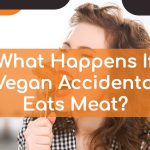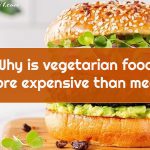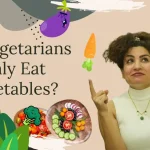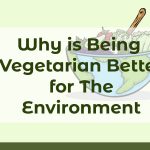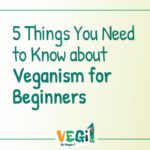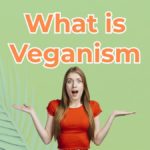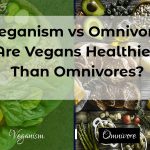The Argument Against Veganism: Why I Became Vegan
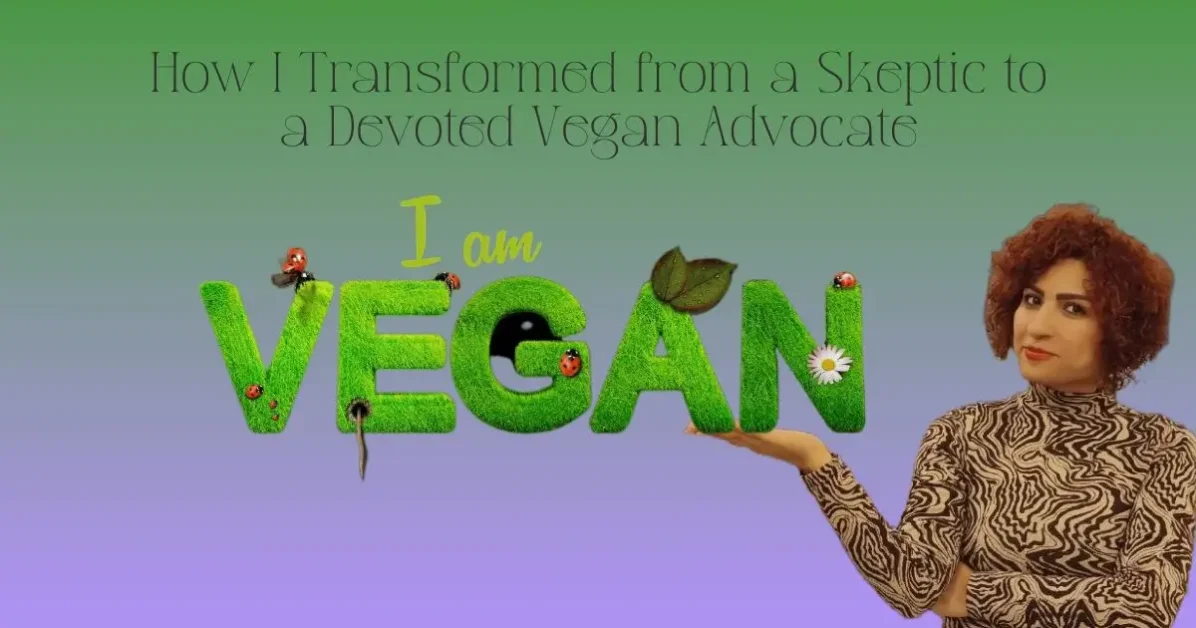
In this post, I’ll share my personal journey from being a sceptic of veganism to becoming a vegan myself. I’ll go through the main arguments I used to hear against veganism and explain why I ultimately changed my mind. By addressing common arguments against veganism, I provide a perspective on why the moral case for veganism is so powerful.
In this article you will read:
Personal Choice: Does It Justify Animal Use?
When discussing the topic of veganism, the argument of personal choice often comes up. Many people believe that choosing to consume animal products is a personal decision and should be respected as such. However, we must delve deeper to understand the implications of this choice.
Personal Choices and Their Consequences
Every action we take is a personal choice. But does that mean every choice is morally justifiable? Consider the example of someone choosing to abuse a dog. Is this act morally acceptable simply because it is a personal choice? Of course not. The presence of a victim who suffers from our actions nullifies any moral justification.
In the context of consuming animal products, the victims are the animals who endure suffering and death. These animals do not choose to be part of the food system; they are forced into it. Hence, citing personal choice as a justification for consuming animal products disregards the suffering of these sentient beings.
One of the primary reasons I chose to go vegan was to respect the personal choice of the trillions of animals killed each year. If given the choice, these animals would prefer to live their lives free from human-inflicted exploitation. They don’t willingly walk onto the kill floor of a slaughterhouse; they are forced there against their will. When we talk about personal choice, we must ask ourselves whose choice we are considering—ours or the animals’.
Therefore, personal choice cannot be a valid justification for the exploitation and suffering of animals.
The Illusion of Choice for Animals
Animals do not willingly walk into slaughterhouses; they are driven there against their will. The notion of choice is entirely removed for them. When we claim personal choice as a justification, we are only considering our own preferences and ignoring the animals’ desire to live free from harm.
Even if we argue that these animals are bred for consumption, it does not make their suffering acceptable. Dog fighting, for instance, is widely condemned despite dogs being bred specifically for that purpose. Breeding animals for exploitation does not grant us moral permission to cause them harm.
Legal vs. Moral Justification
Some might argue that because farming and slaughtering animals are legal, they are morally acceptable. However, legality does not equate to morality. There are numerous practices that are legal in certain countries but are still considered morally wrong, such as festivals that involve animal slaughter.
Moreover, the legality of an action doesn’t equate to its morality. Practices like dogfighting are legal in many places but are still morally abhorrent. Similarly, just because farming and slaughterhouses are legal doesn’t make them morally acceptable. The law isn’t always a perfect mirror of ethical standards.
Cultural and Traditional Practices
Some argue that using animals is part of our culture and traditions. However, not all cultural practices are morally justifiable. For example, the Yulin Dog Meat Festival in China and the slaughter of dolphins in Japan are cultural events that many find deeply unethical. If we excuse the use of animals based on culture and tradition, we must also accept other harmful practices justified by the same reasons, such as such as female genital mutilation in some societies.
We cannot justify the use of animals by appealing to culture or tradition. If we did, we would have to accept all cultural practices, regardless of their moral implications.
Are Animal Products Necessary for Survival?
Another common argument against veganism is that consuming animal products is necessary for human survival and optimal health. However, extensive research and expert opinions suggest otherwise.
Expert Opinions on Vegan Diets
The American Dietetic Association, the largest body of diet and nutrition professionals in the US, has stated unequivocally that a vegan diet is healthy, safe, and nutritionally adequate for all stages of life, including pregnancy, lactation, and infancy. This position is also supported by the British Dietetic Association and the NHS.
These organizations base their recommendations on a wealth of scientific evidence. A well-planned vegan diet provides all the essential nutrients required for a healthy life. Thus, the claim that animal products are necessary for survival is unfounded.
Therefore, consuming animal products is not a necessity but a choice, and one that comes with significant health risks.I’ll explain more about the health risks in the next section.
Health Risks Associated with Animal Products
Numerous studies have linked the consumption of animal products to some of the leading causes of death, including heart disease, certain cancers, type two diabetes, and strokes. These findings suggest that not only are animal products unnecessary, but they can also be detrimental to our health.
For instance, a diet high in saturated fats and cholesterol, commonly found in animal products, increases the risk of heart disease. Conversely, a plant-based diet rich in fruits, vegetables, whole grains, and legumes has been shown to reduce the risk of these chronic illnesses.
Thriving on a Vegan Diet
The scientific community largely agrees that humans can thrive on a vegan diet. Many athletes, bodybuilders, and health enthusiasts have adopted veganism and achieved remarkable results. This evidence further debunks the myth that animal products are essential for optimal health.
In conclusion, the argument against veganism based on the necessity of animal products for survival does not hold up under scrutiny. With the abundance of plant-based options available today, it is entirely possible to lead a healthy, fulfilling life without causing harm to animals.
Are Humans Biologically Designed to Eat Meat?
One of the most common arguments against veganism is that humans are biologically designed to eat meat. Proponents of this view often point to our anatomy, such as our canine teeth and the dietary habits of our ancestors. as evidence. But does this argument hold up under scrutiny?
Whether we are biologically more suited to an omnivorous or herbivorous diet is irrelevant. The critical point is that we don’t need to eat meat to survive. We can thrive on a plant-based diet, making the consumption of animal products unnecessary and, therefore, unjustifiable.
Canine Teeth and Diet
It’s true that humans have canine teeth, but this doesn’t necessarily mean we’re meant to eat meat. Many herbivorous animals also have canines. Take the saber-toothed deer, for example. Canine teeth are not exclusive to carnivores; they can serve various purposes, including self-defense and mating displays.
Our teeth are more suited for grinding and chewing plant matter and our jaws grind side to side like herbivores. Our molars are flat and designed for breaking down fibrous plant material, similar to the teeth of herbivorous animals. So, while we can eat meat, our dental structure doesn’t prove we are biologically designed to do so.
Digestive System
Our digestive system also provides clues about our natural diet. Humans have long intestines, roughly three times the length of those in typical omnivores. This is more similar to herbivores, who need longer intestines to digest plant matter efficiently. Additionally, human stomach hydrochloric acid is weaker compared to that of true carnivores and even many omnivores, making it less effective at breaking down raw meat. These physiological traits suggest that our bodies are better adapted to a plant-based diet. But even if we were biologically equipped to eat meat, it wouldn’t justify doing so from a moral standpoint. Just because we can do something doesn’t mean we should.
Modern Choices
In today’s world, we have the luxury of choice. Unlike our ancestors, who might have needed to eat meat for survival, we have access to a wide variety of plant-based foods. This means we can thrive without consuming animal products. The absence of necessity removes any moral justification for eating meat.
Moreover, many people who argue that we’re designed to eat meat would never want to kill an animal themselves. If seeing the process of how meat ends up on our plates makes us uncomfortable, it’s worth questioning whether it’s something we should be supporting at all.
The necessity and survival argument fails when we consider the overwhelming evidence supporting the health benefits of a vegan diet and the ethical implications of causing unnecessary harm to animals.
How to Become Vegan step by step
Appealing to Nature: The Flawed “Circle of Life” Argument
Another argument against veganism is the appeal to nature, often framed as the “circle of life.” This argument suggests that eating animals is part of the natural food chain and the circle of life. They say it’s a natural process where everyone born must eventually die.
But does this reasoning hold up? While this sounds poetic, it doesn’t hold up when we examine what actually happens in animal agriculture.
The Circle of Life
The concept of the circle of life refers to the natural process of birth, life, and death. In nature, predators hunt prey, and this cycle helps maintain ecological balance. However, what humans do to animals in factory farms and slaughterhouses is far removed from this natural process.
The True Role of Food Chains
Food chains are crucial in maintaining balanced ecosystems. They help regulate animal populations and ensure ecological harmony. However, what we do in animal agriculture is far from natural. In factory farms, We selectively breed, genetically modify, and forcibly impregnate animals. We take their babies away, mutilate them, and exploit them for their natural products. They are then transported to slaughterhouses, where they are killed in ways that have nothing to do with natural predation., hang them upside down, cut their throats, and bleed them to death. None of this fits into a natural food chain.
The food chain argument is a human construct, created to justify unnecessary acts. It ignores the intricate web of life that forms our ecosystems and overlooks our ability to make moral decisions. The idea that “might makes right” is flawed. Just because we can exploit animals doesn’t mean we should.
Food Chains vs. Human Practices
Food chains are essential for maintaining ecological balance. They ensure that population sizes are kept in check and that ecosystems remain healthy. However, the industrial practices we subject animals to do not fit into this natural order. Instead, they are human constructs designed to maximize profit at the expense of animal welfare.
This appeal to nature fallacy overlooks our ability to make moral decisions. Just because something occurs in nature doesn’t mean it’s morally acceptable for us to replicate it. Lions kill gazelles because they must to survive. We don’t have that necessity, so the comparison is flawed. If we use the circle of life to justify harming animals, we could also justify harming humans. This logic falls apart upon closer scrutiny.
Moral Agency
As beings with moral agency, we have the ability to make ethical choices. We don’t base our morality on the actions of wild animals. For instance, lions also engage in behaviors we would never deem acceptable, such as infanticide. Just because something is natural doesn’t make it right.
The “circle of life” argument also ignores the fact that we have alternatives. We can choose to eat plant-based foods and still lead healthy, fulfilling lives. By doing so, we can reduce the suffering and exploitation of animals.
What’s Truly Natural?
When we selectively breed and genetically modify animals, we are interfering with natural processes. When we forcibly impregnate and exploit them, we are acting against nature. Our modern practices have nothing to do with the natural order and everything to do with convenience and profit.
The argument against veganism based on the “circle of life” is flawed. It fails to consider the unnatural conditions we subject animals to and overlooks our capacity for moral decision-making.
What can vegans not eat? Vegan Prohibited Food List
What About Releasing Animals or Crop Deaths?
One of the concerns people often raise is what would happen to all the animals if the world went vegan. Would we release billions of animals into the wild? That would be disastrous for natural ecosystems. It’s a valid worry, but let’s break it down.
Gradual Shift and Supply and Demand
Animal agriculture operates on a supply and demand system. Farmers breed animals based on the market demand. If people stop buying animal products, farmers will stop breeding animals. This shift will be gradual. As more people go vegan, the demand for these products decreases. Consequently, in a vegan world, farmers will no longer breed animals for consumption.
The transition to a vegan world will be smooth, with farmed animal populations decreasing proportionally to the demand for animal products.
If we ever achieve a fully vegan world, farmers will simply stop breeding animals for consumption. We won’t face the dilemma of releasing billions of animals into the wild or having to slaughter them all at once. The population of farmed animals will decline naturally as demand decreases.
Economic Viability
Farmers won’t breed animals they can’t sell. It’s not economically viable. As the demand for animal products decreases, so will the number of animals being bred. This natural decline will prevent the need to release animals into the wild or euthanize them en masse.
In a vegan world, we will see a shift in agricultural practices. Farmers can transition to growing plant-based foods, creating sustainable and cruelty-free food systems. This change will benefit not only animals but also the environment and human health.
Ethical and Environmental Benefits
By moving towards a vegan world, we can reduce the immense suffering animals endure in factory farms and slaughterhouses. We can also address significant environmental issues like deforestation, water pollution, and greenhouse gas emissions. A plant-based diet is more sustainable and can help combat climate change.
Furthermore, a vegan world can improve public health. Plant-based diets are linked to lower risks of chronic diseases like heart disease, diabetes, and certain cancers. By choosing veganism, we can create a healthier world for future generations.
By understanding the principles of supply and demand, we can see that a gradual shift towards veganism will naturally reduce animal populations. This transition will create a more ethical, sustainable, and healthy society.
Crop Deaths and Hypocrisy
Another argument against veganism is that small animals sometimes die in the production of crops. This is true; small animals like caterpillars, worms, and sometimes even small mammals like mice and rats can die during crop harvesting. But there’s a significant difference in intention and certainty.
When we buy animal products, we are intentionally paying for someone to cause the suffering and death of an animal. This is a certainty. When we buy plant products, we are not intentionally causing harm; the death of small animals is an unintended consequence. It’s not the same as directly causing harm.
Accidental vs. Intentional Harm
Imagine you’re driving and accidentally run over a dog. It’s unfortunate, but it’s not the same as intentionally running over a dog. The argument that it’s morally justifiable to buy animal products because small animals die in crop production is like saying accidentally hitting a dog is the same as doing it on purpose. The two scenarios are morally different.
Plant Lives and Resource Efficiency
Some people argue that plants are alive, so why don’t we consider them in our moral circle? While plants are alive, they are not conscious. They lack a brain, central nervous system, and pain receptors. More importantly, It can take up to sixteen kilograms of plants to produce one kilogram of animal flesh, meaning A non-vegan diet uses vastly more plants than a vegan diet.
If we care about reducing harm to plants, logically and morally, we should still be vegan. This also applies to the small animals killed in crop production. A non-vegan diet requires more crops, leading to more accidental deaths of small animals.
Soy Farming and Environmental Impact
Critics often point out that soy farming is devastating for the environment. However, seventy to eighty-five percent of all soy grown is fed to livestock animals. As little as six percent of soy is used for human consumption. Soy is found in many products like breads, cereals, sauces, and chocolates, not just in tofu. So, if we care about the environment, we should reduce our consumption of animal products and meat to reduce the demand for soy.
Dairy, Eggs, and Vegetarianism
Many people think that being vegetarian is enough since animals don’t die in the production of dairy and eggs. Unfortunately, this is a myth. The dairy and egg industries are fraught with cruelty and death.
The Egg Industry
In the egg industry, male chicks are considered useless because they don’t lay eggs and won’t grow large enough for meat production. As soon as they are born, they are often thrown into a giant macerator and minced alive or gassed to death.
Female egg-laying hens are sent to slaughterhouses after around seventy-two weeks of life when their bodies are depleted from overexploitation and they are no longer profitable to farmers.
Thus, consuming eggs contributes to the suffering and death of both male and female chickens. It’s not a cruelty-free alternative.
The Dairy Industry
Dairy cows are mammals, just like us. They produce milk to feed their babies. To ensure continuous milk production, dairy cows are forcibly impregnated year after year. Once they give birth, their calves are taken away, usually within 24 hours. Male calves are often killed shortly after birth because they are not profitable for milk production.Approximately ninety-five thousand male dairy calves are killed annually in this country alone.
Female calves are raised to become dairy cows, continuing the cycle of forced impregnation and exploitation. Eventually, all dairy cows are sent to slaughter when their milk production wanes. The dairy industry is intrinsically linked to the meat industry, and it involves significant animal suffering.
Longer Suffering in Dairy and Egg Industries
In some ways, the suffering in the dairy and egg industries is even more prolonged than in meat production. Dairy cows and egg-laying hens endure years of exploitation before they are finally killed. Their lives are marked by constant stress, pain, and deprivation. By consuming dairy and eggs, we are not avoiding cruelty; we are merely supporting a different form of it. The suffering and death involved in these industries are just as real and significant as those in the meat industry.
Humane Slaughter: A Misleading Term
The concept of “humane slaughter” is often touted as a justification for consuming animal products. However, the term is misleading. Slaughterhouses are designed for efficiency, not compassion.
Many people think that animals are killed painlessly in slaughterhouses. But the reality is far from humane. The methods used to kill animals, whether it’s stunning, gassing, or throat-slitting, are inherently violent and cause immense suffering.
Even the most “humane” slaughter methods involve fear, stress, and pain for the animals. The idea that we can kill animals in a way that is kind or compassionate is a contradiction. The act of taking a life cannot be humane.
It’s crucial to question whether any form of slaughter can truly be considered humane.
When we talk about humane slaughter, we need to understand what “humane” actually means. Humane means showing compassion or benevolence. So, humane slaughter is an oxymoron. You can’t compassionately take the life of an animal who doesn’t want to die and doesn’t need to die.
Taste vs. Life
When it comes to the debate on veganism, one of the most challenging arguments to tackle is the appeal to taste.
Let’s talk about taste. What holds more value—taste or life?
A meal lasts only a few minutes for us, but that meal costs an animal their entire life.
We often forget about the meal as soon as we’ve consumed it.but what about the animal whose life was taken for that fleeting moment? Their life is cut short for something that is momentary for us. They are born, raised, and ultimately killed for a momentary pleasure that we quickly forget. Is it morally justifiable to take a life for something so fleeting?Beyond Sensory Pleasure
We need more than sensory pleasure to justify an action morally. Enjoying the taste of meat doesn’t outweigh the ethical implications of taking a life. When we consider the suffering and death involved, the scales tip heavily in favor of life. The argument that taste can validate the killing of animals lacks depth.
Many people, including myself, once believed that vegans were forcing their views on others. However, no act is more forceful than taking the life of an animal who does not wish to die. This realization helped me see the true forcefulness lies in the act of killing, not in advocating for compassion.

From Skeptic to Vegan: My Journey to Veganism
I used to think that my arguments against veganism were solid. I believed that calling myself an animal lover while consuming animal products was justifiable. But one day, I had a moment of clarity. I realized that my values were in direct contradiction with my actions.
I prided myself on being an animal lover. Yet, I paid for animals to suffer and die on my behalf. This contradiction was glaring. How could I claim to love animals while causing them harm? The more I thought about it, the more I saw that my arguments held no credibility or validity.
Through all the excuses I used to make, I came to understand that they were just that—excuses. Deep down, there was no real justification for my actions. I had to confront the uncomfortable truth: my behavior was inconsistent with my values. This realization was the turning point for me.
Initially, I believed that consuming animal products was essential for my family’s well-being. But after researching and experimenting with plant-based diets, I found that we could thrive without causing harm to animals. This realization was eye-opening and made me question my previous beliefs.
I used to think that vegans were extreme .However, the more I learned , the more I realized that I was wrong. As a mother, I wanted to set a good example for my children and teach them kindness.
And now
No longer would we contribute to their suffering and death.
Conclusion
In the end, my arguments against veganism held no credibility. I called myself an animal lover, yet I paid for animals to suffer and die. Realizing that my values contradicted my actions was a turning point. Deep down, I found no real justification for continuing to consume animal products. Choosing a vegan lifestyle has been one of the most fulfilling decisions I’ve ever made.
Source:
- Why Do We Love Some Animals and Eat Others? | Lady Freethinker.
- The Truth About Veganism – The Mozinity
- Is a Plant Based Diet Right For You? – Dr. Bindiya
- Essay on Nutrition
- Environmental Vegetarianism – Assignment Point.


